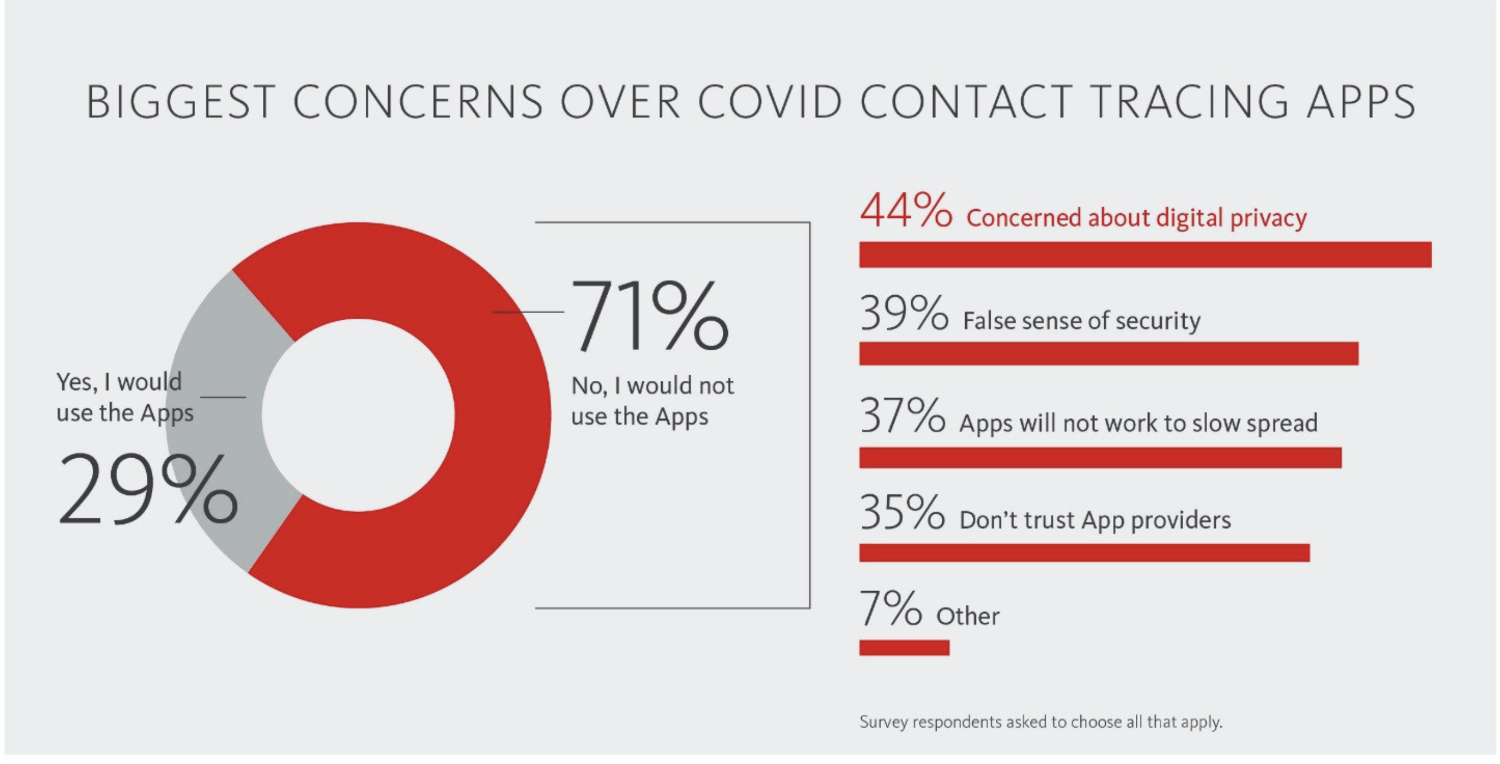A new study has revealed that 71% of Americans won’t download a COVID contact tracing app, citing people don’t trust the technology to protect their digital privacy. The research, commissioned by Avira, was compiled from a June survey.
Key findings from the report include:
- Americans are twice as likely to trust contact tracing technology provided by Big Tech to keep their data private over government-run apps.
- People age 25-44 rank COVID tracing apps as a bigger digital privacy threat than identity theft or cybercrime.
- The least-likely age group to use the apps are those most susceptible to the virus: 88% of people 55+ said they do not intend to download.
- Government + Healthcare workers are the least likely to download COVID contact tracing apps, with 84% reporting they do not intend to download.
- Roughly 40% of Americans said no organization should have access to COVID contact tracing app data; if data must be shared, people are most comfortable giving access directly to hospitals, followed by Google/Apple and then their state government.
- Over 75% of Americans believe their digital privacy is at risk if COVID contact tracing app data is stored centrally so government and authorities can access the data.
“We believe these survey results send a clear signal to both app creators and the government. COVID contact tracing apps could fail before they launch if developers don’t communicate to the public how they plan to protect people’s privacy,” says Travis Witteveen, CEO of Avira. “Furthermore, most Americans reported they currently trust Big Tech over the government; for the success of this important venture, the technology experts should lead the charge on COVID contact tracing apps.”
Avira provides a consumer-focused portfolio of security and privacy solutions for Windows, Mac, Android and iOS, home networks, and smart devices (IoT). All Avira features are available as licensed SDKs and APIs. Working together, Avira and its partners protect more than 500 million devices globally. Avira solutions consistently achieve best-in-class results from independent security tests.



